Photo: Taylor Hill/Getty Images
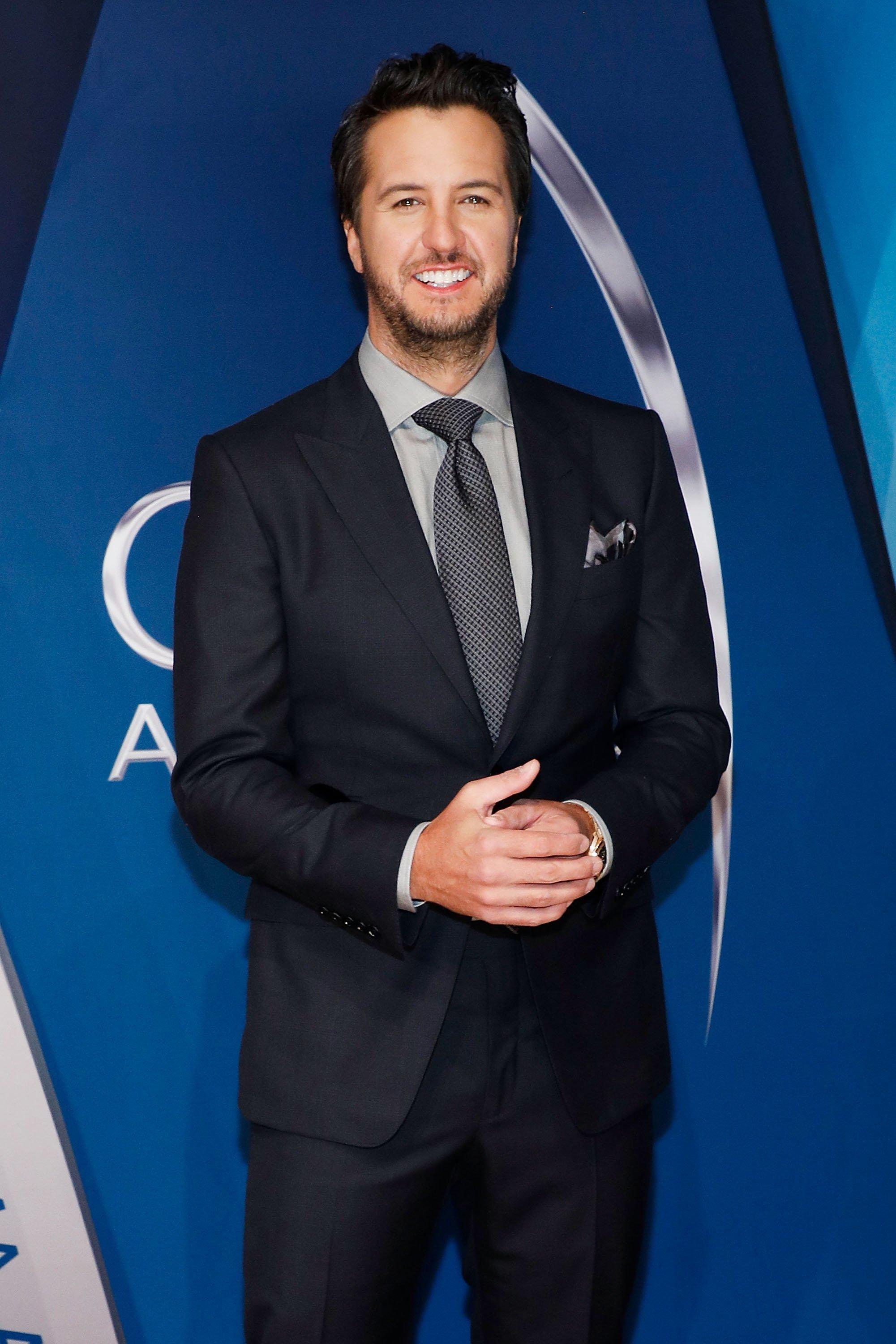
Luke Bryan
news
Luke Bryan's 'What Makes You Country' Reaches No. 1
The country star and "American Idol" judge finds himself atop the Billboard 200 for the fourth time in his career
Luke Bryan's latest album, What Makes You Country, is already on top, landing at No. 1 on the Billboard 200 this week. The album dropped Dec. 8 and marks Bryan's fourth album to hit No. 1, joining 2015's Kill The Lights, and both of his 2013 releases — Crash My Party and Spring Break … Here To Party — in the honor.
<iframe src="https://tools.applemusic.com/embed/v1/album/1291596952?country=us" height="500px" width="100%" frameborder="0"></iframe>
In all, four country albums have topped the Billboard 200 in 2017: Kenny Chesney's Live In No Shoes Nation, Shania Twain's Now and Thomas Rhett's Life Changes. This yearly total is the most for the genre since 2014 when five artists, including Blake Shelton, Eric Church, Miranda Lambert, Jason Aldean, and Florida Georgia Line made it to No. 1, according to Billboard.
Bryan's chart success was fueled by the hit radio single "Light It Up," which was released on Aug. 23 ahead of What Makes You Country. It also earned the No. 1 spot on Billboard's Country Airplay Chart.
Following his four January 2018 Crash My Playa concert vacation shows in Riviera Maya, Mexico, Bryan will launch his What Makes You Country Tour on Feb. 16 in Springfield, Mo. That will take him through North America and Australia, wrapping July 22 in Twin Lakes, Wis.
Country Music Hall Of Fame & Museum Announces Lineup Of 2018 Exhibits
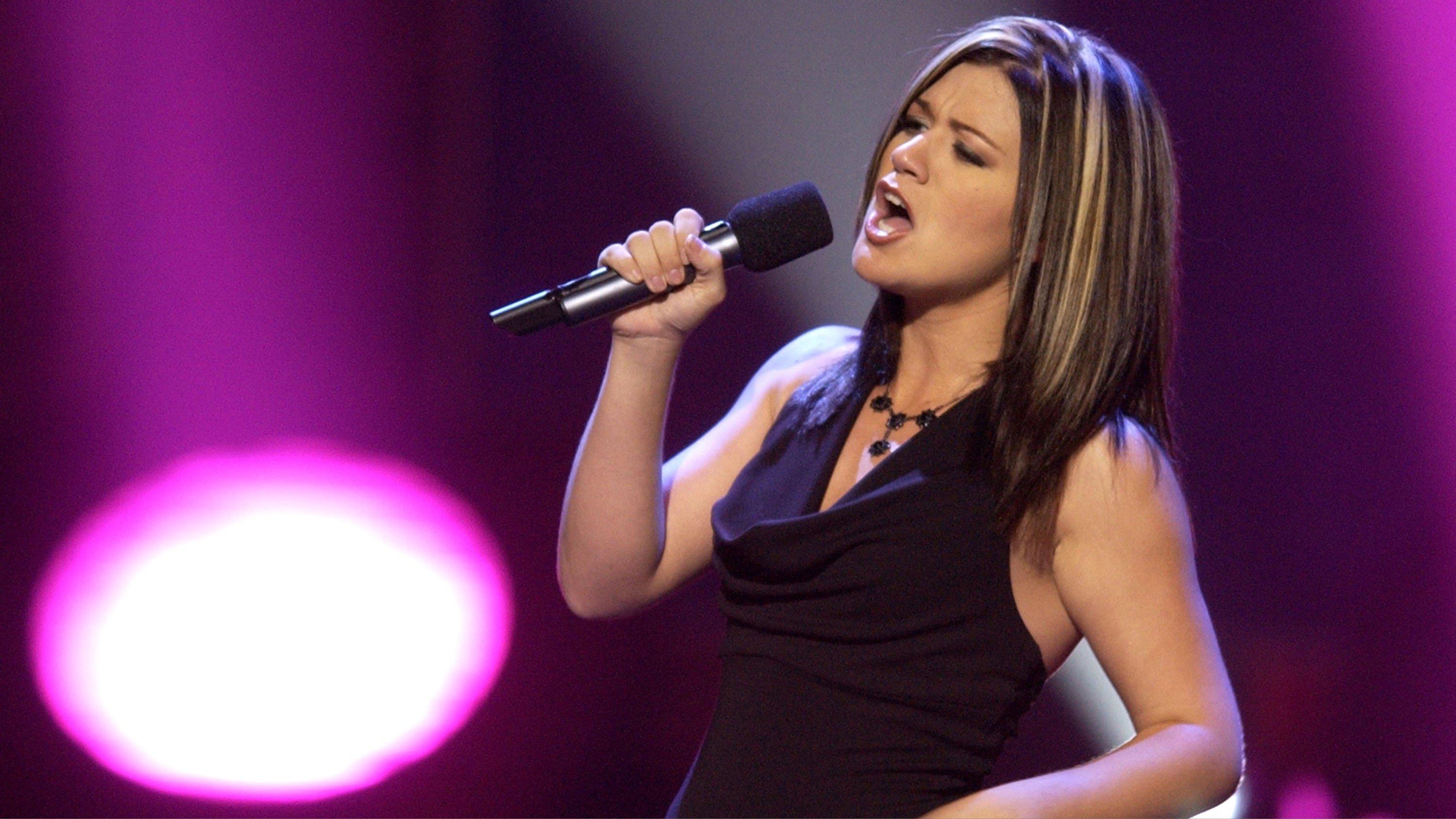
Photo: Steve Granitz / GettyImages
news
On This Day In Music: "American Idol" Premieres On Fox Network
For decades, "American Idol" has been instrumental in discovering some of music’s biggest names and pioneering the reality TV contest genre. As the show enters its 22nd run, here’s a look at how it has become an iconic household staple across the country.
For countless Americans, "American Idol" is intertwined with core memories as a show that had families eagerly glued to their TVs twice a week. It brought generations together, creating moments of both suspense and excitement that are still remembered today, as the show continues to run in its 22nd season.
Created by visionary entrepreneur Simon Fuller, "American Idol" premiered on June 11, 2002, as a fresh spin-off of the British program "Pop Idol." It revolutionized how Americans engaged with reality TV through its interactive, viewer-driven voting system, which encouraged audience participation in the success of their favorite contestants. The show also offered viewers a glimpse into contestants' candid backstories and personal journeys, anchoring emotional investment and skyrocketing the show's popularity.
The show's debut season featured a dynamic trio of judges: singer Paula Abdul, TV personality Simon Cowell, and producer Randy Jackson. Their contrasting personalities brewed a chemistry as captivating as the hopeful performances. Abdul’s warmth, Cowell's blunt wit, and Jackson’s humor added extra layers of entertainment, making the twice a week broadcasts a must-watch.
The first season of "American Idol" also unforgettably introduced the country to Kelly Clarkson. Since her debut — with a heart-tugging backstory about being the average girl-next-door with big dreams — Clarkson has gone on to tour the world, host her own TV talk show, and secured her spot as one of music’s most beloved talents.
"I had dreams since I was a little girl that I wanted to be on the GRAMMYs, or some award show and sing on there," Clarkson mentioned in her pre-audition interview. Flash forward 22 years, the pop singer has accumulated 17 GRAMMY nominations and three wins, propelled by a powerful vocal gift.
Other artists who launched their careers from the show's platform include Jordin Sparks, Carrie Underwood, Adam Lambert, and Jennifer Hudson, who each serve as testament to the show’s impact in music.
"American Idol" has not only opened our eyes to some of our favorite musicians, but it also has given us some of our favorite pop culture moments.
A video that frequently resurfaces on social media captures a memorable moment between Katy Perry and contestant Noah Davis, where they bond over the slang term 'wig'.
"No, it’s not your language. It’s just for us," Perry joked to her fellow judges, Lionel Richie and Luke Bryan, when they questioned the term’s meaning.
After two decades on air, "American Idol" has etched a lasting legacy in pop culture. It has paved the way for other reality TV music shows and created lasting memories for music fans along the way.
“The show transcends age, gender, ethnicity, everything,” Underwood told Billboard in 2005.
Explore More History-Making Moments In Music

On This Day In Music: Spice Girls Release "Wannabe," Their Iconic Debut Single
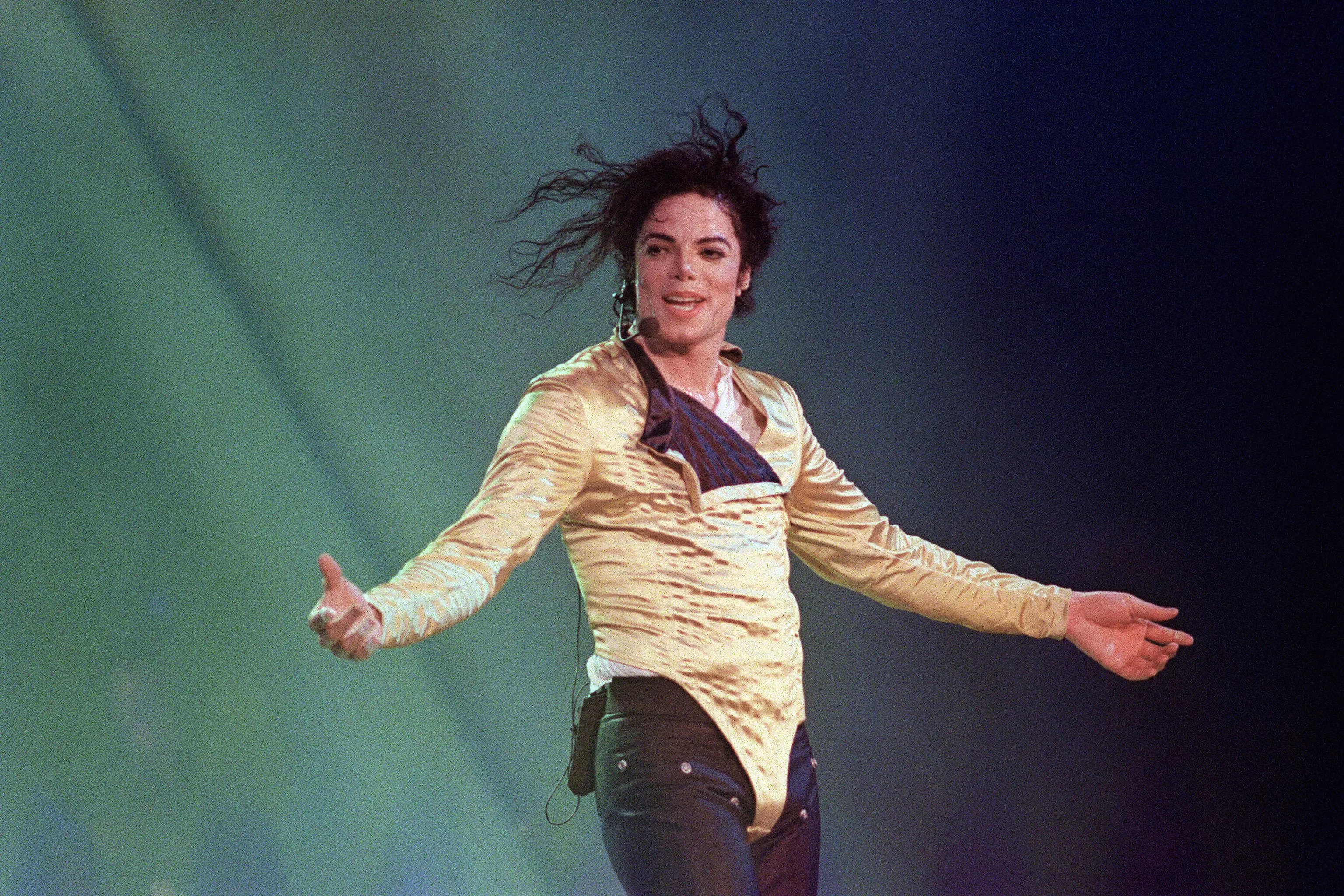
On This Day In Music: Michael Jackson Passes Away In Los Angeles At Age 50
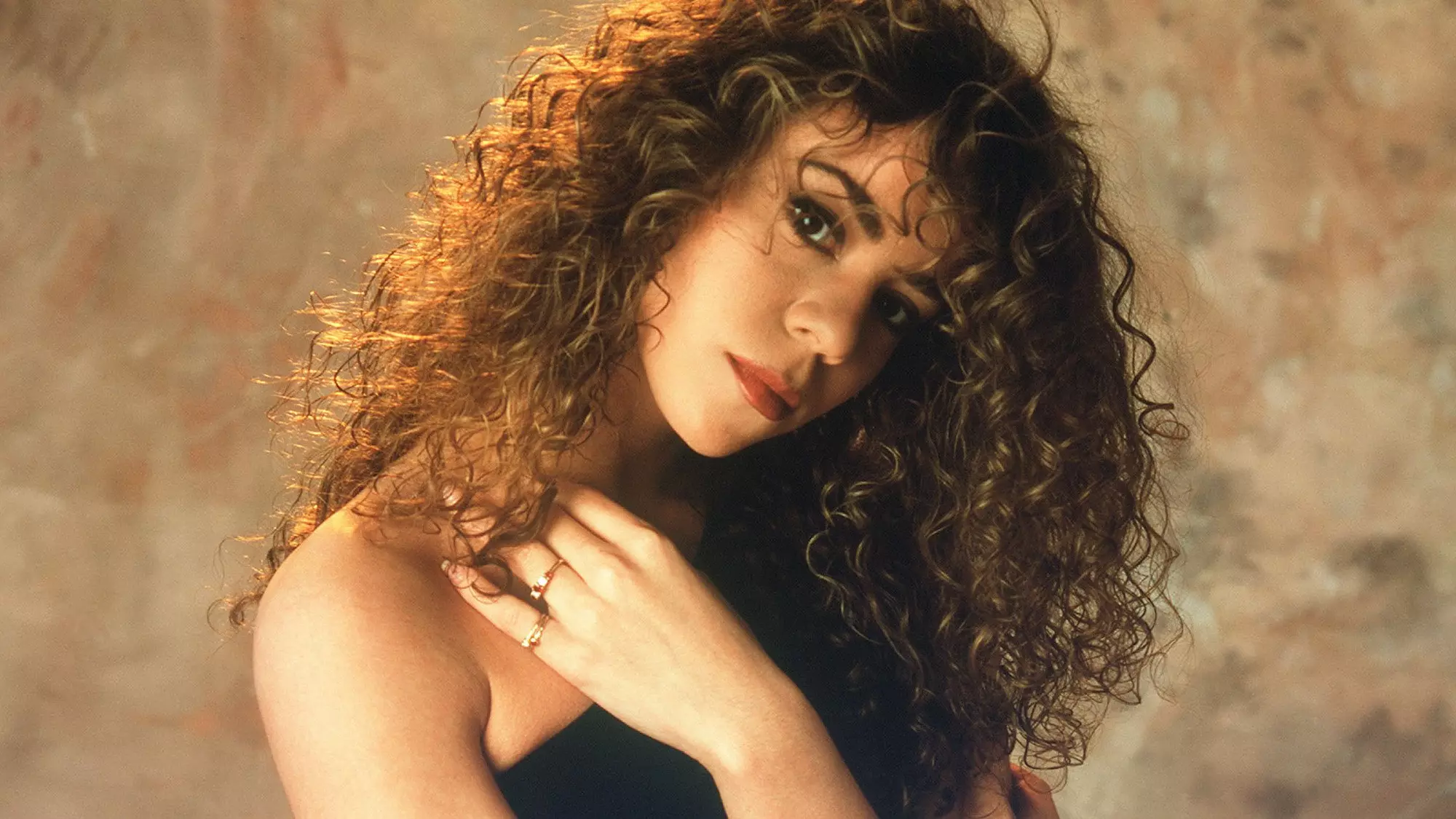
On This Day In Music: Mariah Carey Releases Her Self-Titled Debut Album
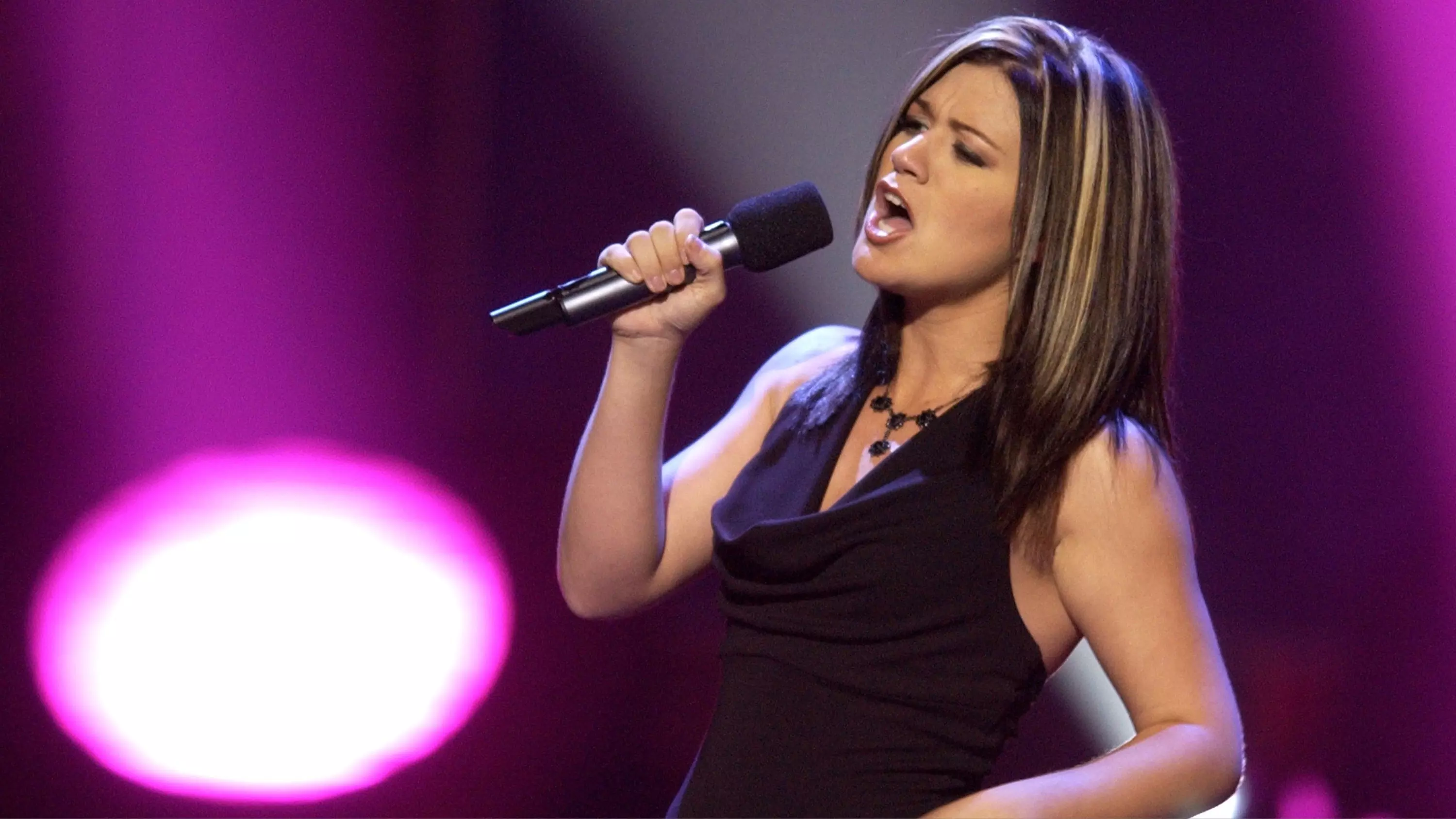
On This Day In Music: "American Idol" Premieres On Fox Network
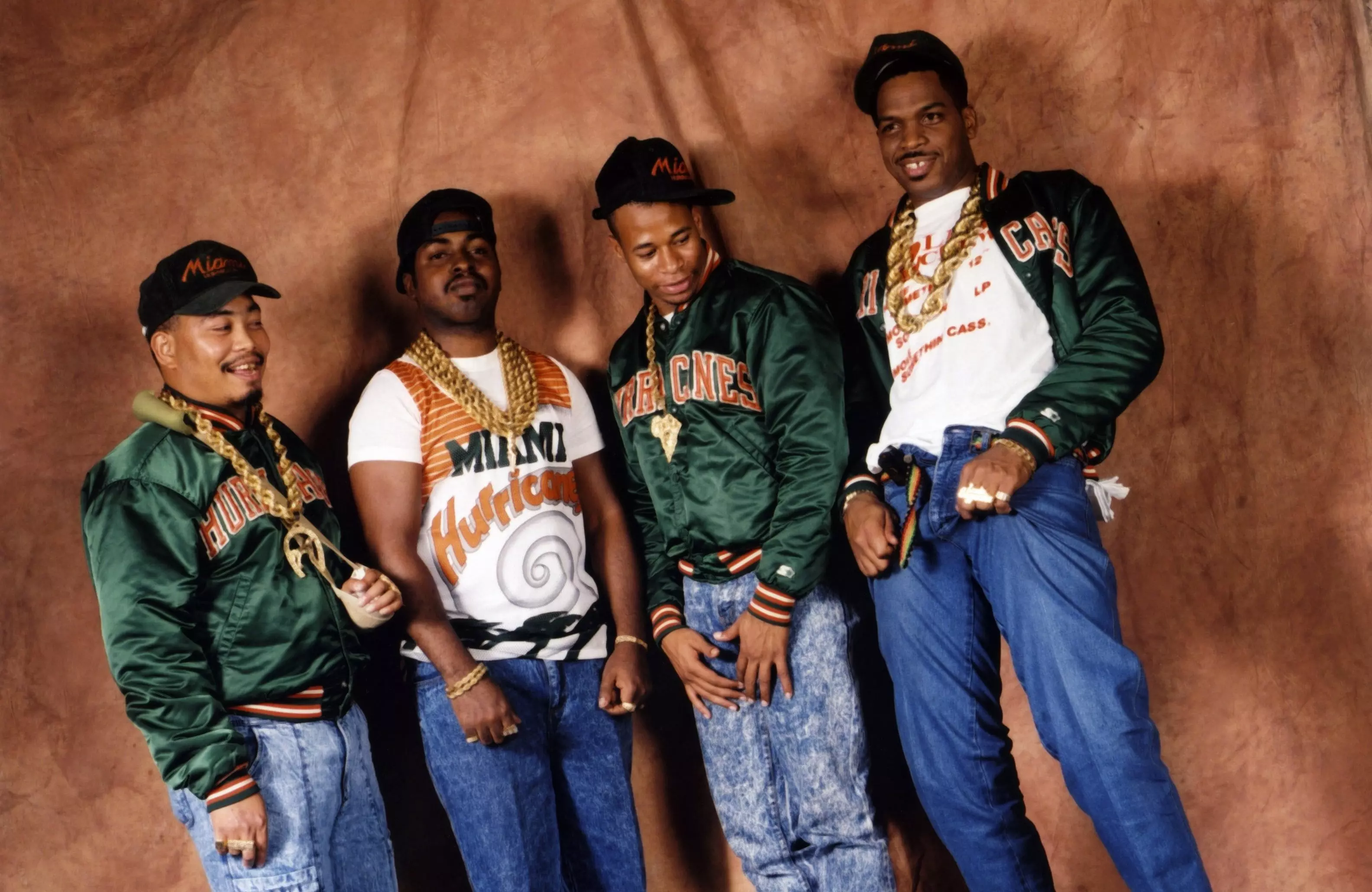
On This Day In Music: 2 Live Crew's 'As Nasty As They Wanna Be' Becomes First Album Declared Legally Obscene, Anticipates First Amendment Cases

Photo: Jeff Kravitz/FilmMagic
video
GRAMMY Rewind: Kendrick Lamar Honors Hip-Hop's Greats While Accepting Best Rap Album GRAMMY For 'To Pimp a Butterfly' In 2016
Upon winning the GRAMMY for Best Rap Album for 'To Pimp a Butterfly,' Kendrick Lamar thanked those that helped him get to the stage, and the artists that blazed the trail for him.
Updated Friday Oct. 13, 2023 to include info about Kendrick Lamar's most recent GRAMMY wins, as of the 2023 GRAMMYs.
A GRAMMY veteran these days, Kendrick Lamar has won 17 GRAMMYs and has received 47 GRAMMY nominations overall. A sizable chunk of his trophies came from the 58th annual GRAMMY Awards in 2016, when he walked away with five — including his first-ever win in the Best Rap Album category.
This installment of GRAMMY Rewind turns back the clock to 2016, revisiting Lamar's acceptance speech upon winning Best Rap Album for To Pimp A Butterfly. Though Lamar was alone on stage, he made it clear that he wouldn't be at the top of his game without the help of a broad support system.
"First off, all glory to God, that's for sure," he said, kicking off a speech that went on to thank his parents, who he described as his "those who gave me the responsibility of knowing, of accepting the good with the bad."
Looking for more GRAMMYs news? The 2024 GRAMMY nominations are here!
He also extended his love and gratitude to his fiancée, Whitney Alford, and shouted out his Top Dawg Entertainment labelmates. Lamar specifically praised Top Dawg's CEO, Anthony Tiffith, for finding and developing raw talent that might not otherwise get the chance to pursue their musical dreams.
"We'd never forget that: Taking these kids out of the projects, out of Compton, and putting them right here on this stage, to be the best that they can be," Lamar — a Compton native himself — continued, leading into an impassioned conclusion spotlighting some of the cornerstone rap albums that came before To Pimp a Butterfly.
"Hip-hop. Ice Cube. This is for hip-hop," he said. "This is for Snoop Dogg, Doggystyle. This is for Illmatic, this is for Nas. We will live forever. Believe that."
To Pimp a Butterfly singles "Alright" and "These Walls" earned Lamar three more GRAMMYs that night, the former winning Best Rap Performance and Best Rap Song and the latter taking Best Rap/Sung Collaboration (the song features Bilal, Anna Wise and Thundercat). He also won Best Music Video for the remix of Taylor Swift's "Bad Blood."
Lamar has since won Best Rap Album two more times, taking home the golden gramophone in 2018 for his blockbuster LP DAMN., and in 2023 for his bold fifth album, Mr. Morale & the Big Steppers.
Watch Lamar's full acceptance speech above, and check back at GRAMMY.com every Friday for more GRAMMY Rewind episodes.
10 Essential Facts To Know About GRAMMY-Winning Rapper J. Cole
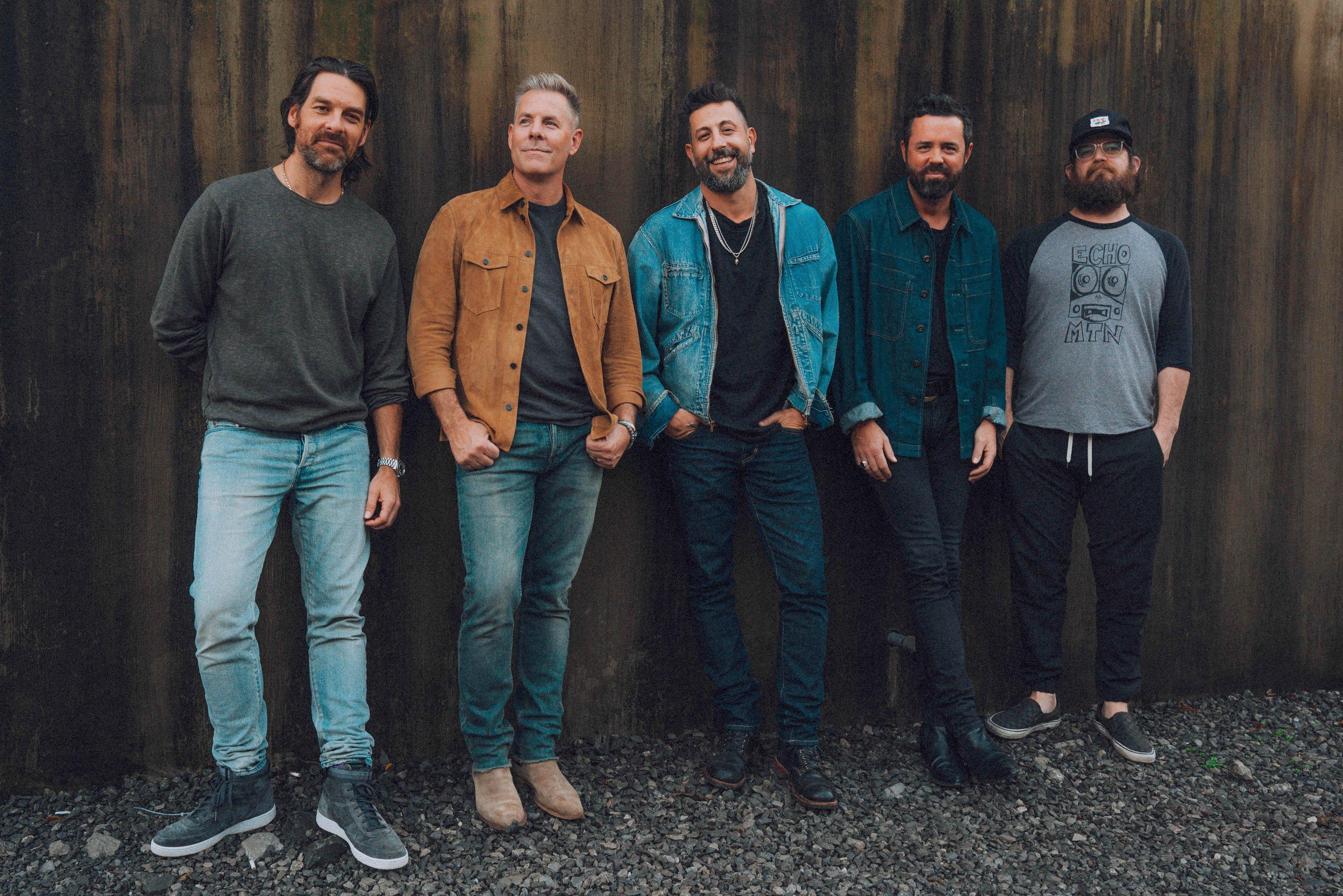
Photo: Mason Allen
interview
Behind Old Dominion's No. 1 Hits: How Kenny Chesney, Food Poisoning & "Ballsy" Moves Created Their Funniest Memories
As Old Dominion's latest single "Memory Lane" continues climbing the charts, the country group's Matthew Ramsey and Trevor Rosen look back on the memorable moments behind hits like "Break Up With Him" and "One Man Band."
Old Dominion never intended to be a band. Initially a friend group of aspiring songwriters in Nashville, they formed a collective in 2007 to showcase their individual songs. More than 15 years later, they've become one of country's biggest groups.
With seven No. 1s on Billboard's Country Airplay chart, Old Dominion have proven to have a knack for writing catchy songs. But they don't need stats to show their skill — whether it's the clever juxtapositions of "Written in the Sand" or the bittersweet metaphors of their most recent single "Memory Lane," their songwriting is as charming as it is thought-provoking. Match that with their earworm melodies, and it's almost hard to believe they never thought "this band thing" would take off.
"It took us a while to have confidence in what we were doing, and to make our priority when we sit down to write music [that] we're writing for us," frontman Matthew Ramsey says. "We knew what we were trying to achieve, but then our fans sort of showed us what we are — and that is, a joyous, very genuine thing. And that's what's grown."
The name of their 2023 tour embodies that sentiment: No Bad Vibes. That's also indicative of the energy Ramsey and bandmate Trevor Rosen brought when they sat down with GRAMMY.com, reflecting on their biggest songs with nothing but joy.
Just before Old Dominion released their latest project, the eight track EP Memory Lane — which Rosen teases "is part of a bigger project coming pretty soon" — the pair shared the hilarious and heartfelt memories behind the band's most beloved songs.
"Break Up with Him" (2015)
Rosen: "Break Up With Him" was our first No. 1, it brought us to the proverbial dance. A vivid memory of writing that song: We were playing at a Kohl's company picnic for like 500 bucks in the middle of, what was it, Ohio?
Ramsey: They had hired us to play a, like, lunchtime company picnic. [Laughs.]
Rosen: Most of the people there didn't know who we were or particularly care, but the memorable part of this day was, we were soundchecking, and just started noodling that groove to "Break Up With Him." We just thought it sounded cool, and I think I held my phone up and recorded a snippet of it.
We were driving in the little Ford Econoline van to get to the next gig that night, and it seemed like everyone was asleep. I was on the back bench not yet asleep, and I saw Matt's head pop up over the bench to see if I was awake. He was like, "I was thinking about that song we started writing today… I had this idea for a one-sided phone conversation."
For the next hour, maybe, he just threw out [ideas] like, "Hey, girl, what's up?" And we're whispering because we don't want to wake anybody else in the van up, and we're just like, cracking each other up with these little one-liners. I think we had all the verses and the hook written by the time we got to the next town.
Ramsey: We were at the musicians union in Nashville kind of working that song out, playing it through, and I remember we called Shane [McAnally], and we're like, "You have to come hear this song." We played it for him and he was just like, "What is this?"
At that point, we were very much active in the songwriting world. We were still getting cuts and having hits on the radio with other people, and pitching essentially everything we wrote. That was the first song that we were like, "Don't let anybody hear this. This one is ours."
Rosen: That helped define that sort of clever, sarcastic fun side of us that maybe we hadn't shown as much up to that point — we had shown more of the rock side, and the good songwriting side. I think we realized right away, "Oh, we can shock people into listening to us and show off that side of us." I think it helped define what we were as a band.
"Song for Another Time" (2016)
Ramsey: The moment that stands out for me is when we first played it at a soundcheck as a band. It was written on the road, and we pitched it to Kenny [Chesney], and Kenny said, "This is great, but you should record it."
Rosen: It was [maybe] a polite way to turn the song down. [Laughs.]
Ramsey: That was the beginning of the level of care that he has for us, and the influence he has on us. He is invested in our career, and that was the first moment that he sort of showed that.
We hadn't even thought of ["Song For Another Time"] in that light yet, because in our minds, we were done recording the album. So there was no sense in even considering it yet, because at that point, who knows what's gonna happen with our career.
We were soundchecking to a big empty stadium and we thought, Well, if [Kenny] says we should record it, let's just try and play it and see what it feels like. And, you know, something about a giant PA system and a stadium — the light bulbs were going off. We came off the stage and back onto the bus after the soundcheck, and called our manager and said, "Hey, we need to fly home and record one more song." We flew home, we recorded that one song, and then we flew back out onto tour.
Rosen: The fact that we were able to squeeze that in was kind of crazy. I also remember, we were in Seattle when it went No. 1. We were in this little bar called The Hideout, Matthew and I and our tour manager at the time, Tommy Garris. They had this cool thing where if you order a drink you got a Polaroid picture with it. So we ordered a drink, and they took a Polaroid of us holding up the No. 1 sign.
"No Such Thing as a Broken Heart" (2017)
Ramsey: That song has become one our favorite moments in the set, just because it's such a different feel. And that was one of the first times where we felt comfortable showing our hearts a little bit, and not just trying to craft a plain ol' hit song. It kind of stemmed from our discussions after the Pulse shooting in Orlando.
That song is always going to be relevant. We're always going to have these opportunities to use that song for good. And I always say before we play it, that's the song that we bring to sing with you, not to you. Because I truly feel like there's power in those words.
We were playing in Virginia Beach, and there was again, unfortunately, another shooting that day, just miles down the road, some police officers were killed. So we went on stage that night, and it was kind of a heavy vibe. I spoke to the crowd and said, "This is what this is for. This is why we felt like writing the song, and so here we are. Together, let's try and create some sort of healing if we can."
When the song is over, we always sing that chorus again with the crowd as loud as possible, and it always is this magical moment — you can just feel everybody take a breath.
Rosen: On the lighter side, we played it on the ACM Awards one year. Before we went on, Matthew was joking around, and instead of [singing] "You can't keep the ground from shaking," he was like, [sings] "You can't keep Luke Bryan from shaking." Luke was the host, and he heard it, and he goes — what did he say?
Ramsey: He said, "You don't have a hair on your ass if you don't say that on the TV show." So we did.
After we walked off stage, he was backstage waiting on us, and he was like a kid that had just won the Little League World Series.
"Written in the Sand" (2017)
Rosen: It's one of my favorite songs that we've put out. I remember the day we wrote it. You had written down "stars or the sand." It was like, "That's a really cool juxtaposition." It was fun to sit there and try to come up with the metaphors and be our clever selves.
For some reason when we first recorded that, I wasn't thinking, "This is a single." And the first time we had a good mix of it pulled up in the studio, I remember the moment sitting on the couch and listening going, Wait a second, this is a giant hit song.
Ramsey: I like where we are right now with that song. Because in the live element, we've taken it and expanded it quite a bit. Up until now, in this tour, I don't think we've really showcased our musicianship, and shown what a true band we are. We picked that song to start doing that with, so now there's an extended version, and we just kind of let Brad do his thing, show his capabilities on the guitar. There's a lot of really cool full-band moments in it.
This song kind of defined our relationship with our label, too. Because when we were making the first record, there was no label head — the person who was there when we got signed ended up getting fired. So we made our whole first album just kind of on our own. So when it came time to make the second album, we just operated like we did on the first one. We didn't tell anybody anything, we didn't send any songs.
They sort of knew what we were doing, but that song was written sort of late in the game, and they started seeing the title pop up on the cut list, and they started asking us, "We haven't approved this song, what's going on?" We just kept going, "You'll hear it when it's done, it's great." We turned it in, and they were like, "Oh, wow, that is great." I think they gained a lot of trust in us. And now, they just leave us alone. [Laughs.]
"Hotel Key" (2018)
Ramsey: When we were on tour with [Kenny] this past summer, a lot of his crew, for the entire year, unbeknownst to us — people like to throw hotel keys up on the stage, and they collected all the hotel keys for the entire tour without telling us. Then on the last show, they handed them out to the crowd, and they were like, "When the second chorus starts, everybody throw 'em." So we hit the second chorus and it just starts raining hotel keys.
Lots of times people hold 'em up and I'll grab 'em. Sometimes I'll just shove them in my pocket or whatever, and there was one time I did that, and we finished the show, and we were walking off stage, and one of our crew members comes running up to me. He was like, "Hey, that person you took their hotel key, they accidentally handed you their driver's license." I looked in my pocket, and sure enough, I had this driver's license.
I [also] remember a funny story about the video. The director got food poisoning during filming. The poor guy was, between takes, going around the side of the bus and like, losing it, and then coming back and finishing. After we wrapped up the shooting of the video — which was probably like, 2:30 in the morning — he had to go to the ER to get fluid because he was throwing up the entire time.
Rosen: That's committing to the bit.
"Make It Sweet" (2018)
Ramsey: This was, quite frankly, born out of us being unprepared. We had booked studio time, but we hadn't talked about what we wanted to record, we hadn't shared songs with each other. We had no clue what direction we wanted to go for that third album — we always have ideas, but to go into the studio with no song is pretty ballsy.
Rosen: When you book a studio, usually, it's expensive, so you go in with songs and you know what you're going to do. We booked the studio with no plan. So it's a little bit more pressure, because if you don't end up writing a good song that day, then you just wasted a lot of money. But we wrote ["Make It Sweet"] and recorded it all right there in the same day.
Ramsey: I had some notes in my phone. You've seen you've seen the, like, T-shirts and bumper stickers and stuff that say, "Take the trip," or "Eat the cake," you know? It was that kind of idea that I had — and I did have "Life is short, make it sweet" written down in that [note].
We were sort of playing, and I remember, off the top of my head, just saying, "I know it's a drag, I know it's a grind" — I was just sort of going. And I looked over at Brad, and Brad goes, "Keep going! Yes, whatever you're doing, do it more!"
Rosen: The other memorable thing about that song was filming the video. We filmed it in Malibu and had an expensive location on this hillside overlooking the ocean. It was supposed to be this beautiful view, but this morning [there] was just a ton of fog — I mean, you couldn't see two feet in front of your face. At one point, you could tell everyone was starting to get a little uptight. It seemed like [it] might be a total bust.
After a couple hours, it finally started to settle, and it settled a little bit below the hill, and it was like we were in the clouds. It turned out to be something you could never do on purpose. It was just one of the most memorable days and most beautiful shots.
Ramsey: We still have [the guitar I throw in the video], and amazingly it was not broken. They went down the hill and got it, and it was basically in tune still!
It was a free guitar that they had sent us for the video, so we were like, "Okay, let's just toss it." We've used it since then — we were like, "Wow, that thing's tough!"
"One Man Band" (2019)
Ramsey: That's a career song for us. We just never saw that song [getting] as big as it got. Before it was a single, we played it in Chicago — it was our first arena show. We decided to play that song, and it was such a huge response. You play new songs all the time, and you get a good enough response, usually. But we played that song, and it was very obvious that that needed to be the next single.
Rosen: They were captive, first of all — it was like, you're playing a ballad, and they're all just hanging on every word. And then when you hit the end of the chorus, everyone cheers. And it's like, that just doesn't happen usually.
Ramsey: The video of that one was never supposed to be the video. It was just our videographer, Mason Allen, was filming rehearsal that day. We were just practicing, and he caught a bunch of footage of it, and we put it up because we needed something out there while we figured out what the video was going to be. But the views were just going through the roof, and we were like, "Why would we mess with that? It seems to be doing just fine!" And it ends up getting nominated for Video Of The Year [at the 2020 Academy of Country Music Awards], when it was just rehearsal.
Rosen: We won the [ACM] award that year for Song Of The Year. That was a big award for us, because we started out as songwriters first.
Ramsey: [When we played] Red Rocks [Amphitheatre in Colorado], ["I'll Be" singer] Edwin McCain was there. He was texting me videos a couple days after, and he was like, "What an insane song, and what an insane thing." He's got one of the biggest songs ever, and he's like, in awe of that song. He was even going like, "Man, f— you guys for writing that song." [Laughs.]
"Memory Lane" (2023)
Ramsey: The thing I'm loving right now is the live performance of that song. It's a similar thing to "One Man Band" in that, from the moment it was out and we added it to the set, we start it and as soon as the first line hits, it's the biggest, like, wall of sound of people singing that first line.
I remember the first time it happened, I was like Oh, damn, we got something here. This does not happen. It was way early in the life of that song for that to be happening, so I started to get real confident in the fact that we had a really great song.
Rosen: That song reminded me to follow what we like the best. We have a lot of other songs that we've recorded that I felt like were hits, and there were a couple that I thought maybe were safer choices, but I knew "Memory Lane" was the first one I wanted to listen to when I got in the car. And you don't always pick that one as the single, so I was glad that we went with that one. If we love it, we've been right — that's usually served us well, that our fans and people in general like it.
"I Should Have Married You" (2023)
Ramsey: We're just so lucky, because people like what we do. It's a really fun time in our careers where we're like, Whatever, let's play the new one, you know people are gonna like it!
A couple of years ago, we were in Canada on a day off, and I just started making this little beat, and recorded that piano progression, and then I had it saved forever. I was constantly listening to it and trying to come up with some sort of idea for it, and I couldn't ever land on anything.
I brought it up in the studio, and everybody loves the feel of it. We started going through the title, and I had this idea: sort of a mad song, that was more like, "You would have made me look like an idiot, I would have married you." And that didn't really feel right until somebody said, "What if it was I should have married you?' and everybody's like, 'Oh, what is that?'"
"Some Horses" (2023)
Ramsey: That one's the only song that we've ever recorded that we didn't write. We weren't searching for songs, it just presented itself at the right time and we felt the need to record it.
Shane and Matt Jenkins are both writers on that song, and those guys were part of our group before any of us had anything. We were all friends, we were all broke, we were all trying to figure out how to do this songwriting thing, and we played just countless writer's rounds, trading songs with each other. And that song, over a decade ago, was one that they would play a lot, and we just loved from the first time we heard it.
Trevor and I were talking about the old days and songs that we loved [when] we were on the bus, and we texted Matt Jenkins, "Do you have the demo for 'Some Horses'?" We weren't even thinking about recording it, we just wanted to be fans of it again.
The way they wrote it, it was in the third person and it was about a woman — "she races, she runs." And then one morning, I was at home before I went to the studio, and I picked up my guitar and started playing it. But I changed it all to first person, and just identified with it very deeply.
Shane was in the studio that day, and I was like, "Hey, let me just run something by you guys" — I hadn't talked to Shane about it or anything. I started playing it, and he was, in his very Shane way, was like, "What are you doing right now? Stop it!" He wasn't expecting it, and it's an emotional thing. And I think he identified with it, too, in the way that I had changed the words.
It's an outside song, but we're so close to those guys, and they're so ingrained in the story of this band, that it doesn't really feel like an outside song. Those are our dear, dear friends, and they've been part of this journey the entire time. The creation of this band, and the sound that we create, and the songs that we put out, their fingerprints are all over it. So this was just a different way that their fingerprints are on it.
Meet Bailey Zimmerman, Country's Biggest New Star Who Still Can't Believe He's Famous

Photo: Rachel Kupfer
list
A Guide To Modern Funk For The Dance Floor: L'Imperatrice, Shiro Schwarz, Franc Moody, Say She She & Moniquea
James Brown changed the sound of popular music when he found the power of the one and unleashed the funk with "Papa's Got a Brand New Bag." Today, funk lives on in many forms, including these exciting bands from across the world.
It's rare that a genre can be traced back to a single artist or group, but for funk, that was James Brown. The Godfather of Soul coined the phrase and style of playing known as "on the one," where the first downbeat is emphasized, instead of the typical second and fourth beats in pop, soul and other styles. As David Cheal eloquently explains, playing on the one "left space for phrases and riffs, often syncopated around the beat, creating an intricate, interlocking grid which could go on and on." You know a funky bassline when you hear it; its fat chords beg your body to get up and groove.
Brown's 1965 classic, "Papa's Got a Brand New Bag," became one of the first funk hits, and has been endlessly sampled and covered over the years, along with his other groovy tracks. Of course, many other funk acts followed in the '60s, and the genre thrived in the '70s and '80s as the disco craze came and went, and the originators of hip-hop and house music created new music from funk and disco's strong, flexible bones built for dancing.
Legendary funk bassist Bootsy Collins learned the power of the one from playing in Brown's band, and brought it to George Clinton, who created P-funk, an expansive, Afrofuturistic, psychedelic exploration of funk with his various bands and projects, including Parliament-Funkadelic. Both Collins and Clinton remain active and funkin', and have offered their timeless grooves to collabs with younger artists, including Kali Uchis, Silk Sonic, and Omar Apollo; and Kendrick Lamar, Flying Lotus, and Thundercat, respectively.
In the 1980s, electro-funk was born when artists like Afrika Bambaataa, Man Parrish, and Egyptian Lover began making futuristic beats with the Roland TR-808 drum machine — often with robotic vocals distorted through a talk box. A key distinguishing factor of electro-funk is a de-emphasis on vocals, with more phrases than choruses and verses. The sound influenced contemporaneous hip-hop, funk and electronica, along with acts around the globe, while current acts like Chromeo, DJ Stingray, and even Egyptian Lover himself keep electro-funk alive and well.
Today, funk lives in many places, with its heavy bass and syncopated grooves finding way into many nooks and crannies of music. There's nu-disco and boogie funk, nodding back to disco bands with soaring vocals and dance floor-designed instrumentation. G-funk continues to influence Los Angeles hip-hop, with innovative artists like Dam-Funk and Channel Tres bringing the funk and G-funk, into electro territory. Funk and disco-centered '70s revival is definitely having a moment, with acts like Ghost Funk Orchestra and Parcels, while its sparkly sprinklings can be heard in pop from Dua Lipa, Doja Cat, and, in full "Soul Train" character, Silk Sonic. There are also acts making dreamy, atmospheric music with a solid dose of funk, such as Khruangbin’s global sonic collage.
There are many bands that play heavily with funk, creating lush grooves designed to get you moving. Read on for a taste of five current modern funk and nu-disco artists making band-led uptempo funk built for the dance floor. Be sure to press play on the Spotify playlist above, and check out GRAMMY.com's playlist on Apple Music, Amazon Music and Pandora.
Say She She
Aptly self-described as "discodelic soul," Brooklyn-based seven-piece Say She She make dreamy, operatic funk, led by singer-songwriters Nya Gazelle Brown, Piya Malik and Sabrina Mileo Cunningham. Their '70s girl group-inspired vocal harmonies echo, sooth and enchant as they cover poignant topics with feminist flair.
While they’ve been active in the New York scene for a few years, they’ve gained wider acclaim for the irresistible music they began releasing this year, including their debut album, Prism. Their 2022 debut single "Forget Me Not" is an ode to ground-breaking New York art collective Guerilla Girls, and "Norma" is their protest anthem in response to the news that Roe vs. Wade could be (and was) overturned. The band name is a nod to funk legend Nile Rodgers, from the "Le freak, c'est chi" exclamation in Chic's legendary tune "Le Freak."
Moniquea
Moniquea's unique voice oozes confidence, yet invites you in to dance with her to the super funky boogie rhythms. The Pasadena, California artist was raised on funk music; her mom was in a cover band that would play classics like Aretha Franklin’s "Get It Right" and Gladys Knight’s "Love Overboard." Moniquea released her first boogie funk track at 20 and, in 2011, met local producer XL Middelton — a bonafide purveyor of funk. She's been a star artist on his MoFunk Records ever since, and they've collabed on countless tracks, channeling West Coast energy with a heavy dose of G-funk, sunny lyrics and upbeat, roller disco-ready rhythms.
Her latest release is an upbeat nod to classic West Coast funk, produced by Middleton, and follows her February 2022 groovy, collab-filled album, On Repeat.
Shiro Schwarz
Shiro Schwarz is a Mexico City-based duo, consisting of Pammela Rojas and Rafael Marfil, who helped establish a modern funk scene in the richly creative Mexican metropolis. On "Electrify" — originally released in 2016 on Fat Beats Records and reissued in 2021 by MoFunk — Shiro Schwarz's vocals playfully contrast each other, floating over an insistent, upbeat bassline and an '80s throwback electro-funk rhythm with synth flourishes.
Their music manages to be both nostalgic and futuristic — and impossible to sit still to. 2021 single "Be Kind" is sweet, mellow and groovy, perfect chic lounge funk. Shiro Schwarz’s latest track, the joyfully nostalgic "Hey DJ," is a collab with funkstress Saucy Lady and U-Key.
L'Impératrice
L'Impératrice (the empress in French) are a six-piece Parisian group serving an infectiously joyful blend of French pop, nu-disco, funk and psychedelia. Flore Benguigui's vocals are light and dreamy, yet commanding of your attention, while lyrics have a feminist touch.
During their energetic live sets, L'Impératrice members Charles de Boisseguin and Hagni Gwon (keys), David Gaugué (bass), Achille Trocellier (guitar), and Tom Daveau (drums) deliver extended instrumental jam sessions to expand and connect their music. Gaugué emphasizes the thick funky bass, and Benguigui jumps around the stage while sounding like an angel. L’Impératrice’s latest album, 2021’s Tako Tsubo, is a sunny, playful French disco journey.
Franc Moody
Franc Moody's bio fittingly describes their music as "a soul funk and cosmic disco sound." The London outfit was birthed by friends Ned Franc and Jon Moody in the early 2010s, when they were living together and throwing parties in North London's warehouse scene. In 2017, the group grew to six members, including singer and multi-instrumentalist Amber-Simone.
Their music feels at home with other electro-pop bands like fellow Londoners Jungle and Aussie act Parcels. While much of it is upbeat and euphoric, Franc Moody also dips into the more chilled, dreamy realm, such as the vibey, sultry title track from their recently released Into the Ether.
